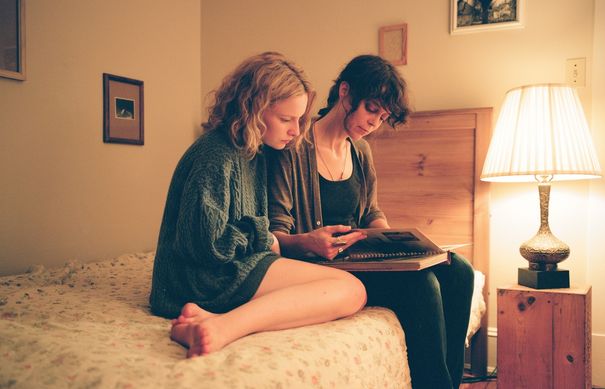“…BUT THEN I GOT LIGHTER.”
Matthew Porterfield’s third feature is a melancholy, sympathetic, but ultimately shaky step into full-fledged fiction filmmaking.

I USED TO BE DARKER
Matthew Porterfield has made a name for himself with his curious ability to create striking, improvisational fiction enhanced by documentary devices. With I USED TO BE DARKER, he offers his first fully scripted feature film, one reservedly observing the dissolution of Kim and Bill's marriage. Two aging hipster/rockers (Kim Taylor and Ned Oldham) are in the midst of separating when they receive the untimely visit of their daughter (Hannah Gross) and an estranged, runaway cousin (Deragh Campbell) carrying a broken heart and an unexpected pregnancy.
As these characters’ lives smash into one another with the impact force of a feather, I USED TO BE DARKER strikes as oddly careless of its dramatic potential, firmly set in media res, ever-suspended in time as if floating and transitional. Photographed in lush, appropriately muted pastels, the film finds Porterfield fascinated with the possibilities of composition, indulgently at times, and while one quickly falls into its lulling beauty, uneven performances from non-professionals and first-time actors often undermine the illusion. What Porterfield does admirably, however, is “dressing” his characters believably; using all manners of his actors’ personal interests and talents, adding greatly to the film’s immediacy and realism–again, finding strength in the realm of documentary rather than fiction. Taylor and Oldham, both real-life musicians, provide most of the film’s soundtrack. Perhaps the most noteworthy aspect of I USED TO BE DARKER is how music becomes a crucial tool through which the characters manage to express their internalized emotions and move past the inertia. The original songs and the carefully chosen covers express the characters’ psyches and personal histories, allowing for entire scenes to be elevated through performance of another type: beautiful moments of music where the fiction cracks, the pretense vanishes and the film manages to feel entirely genuine.
Neither here nor there, really – I USED TO BE DARKER just happens. Not without emotional resonance, but somehow self-effacing and unsubstantial.

